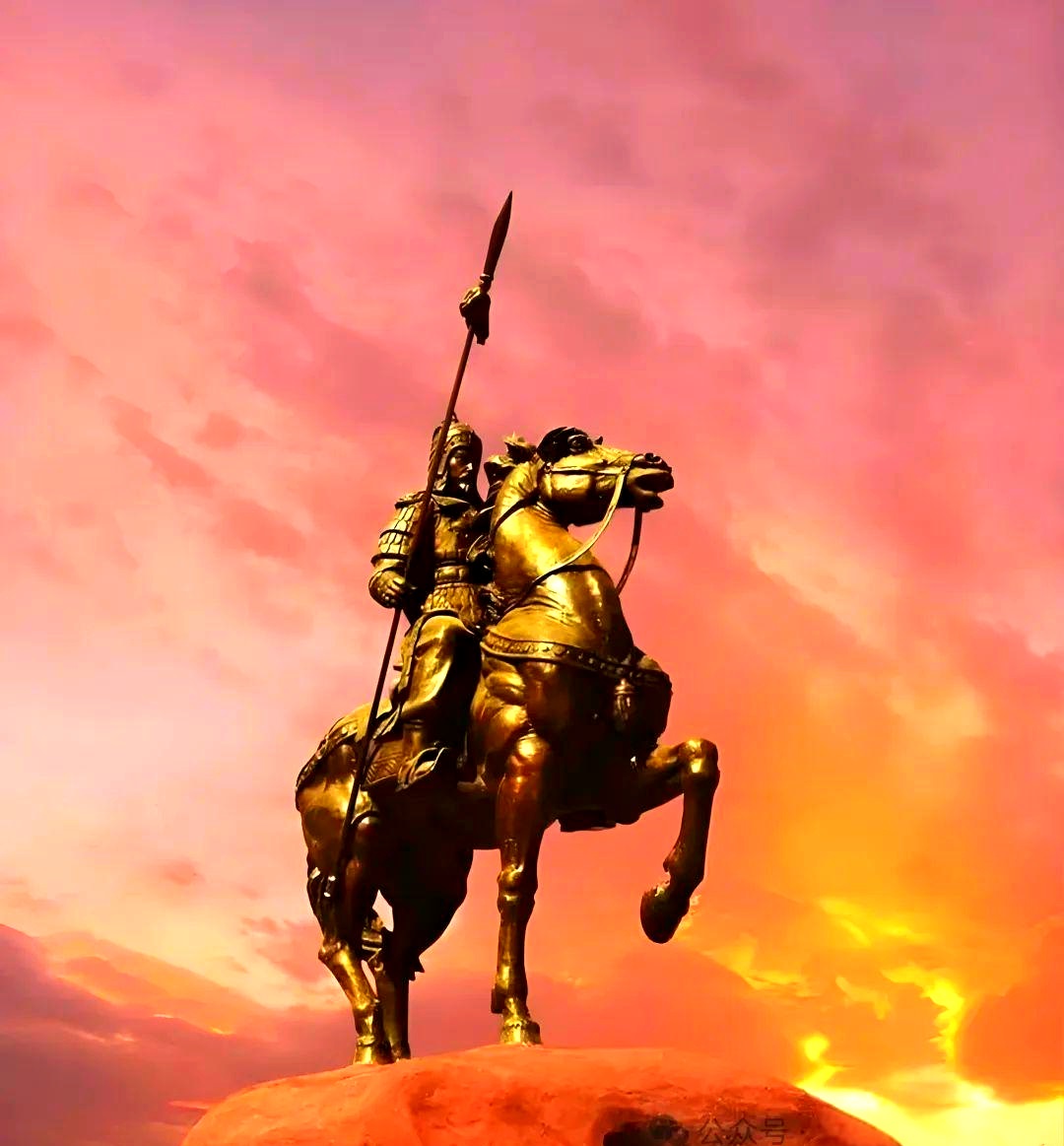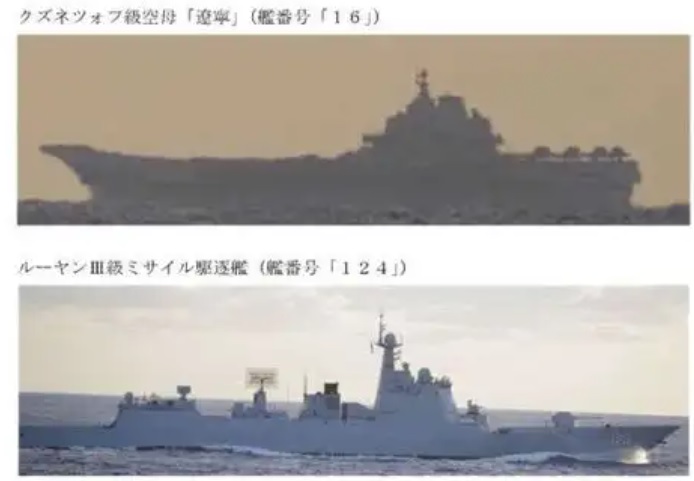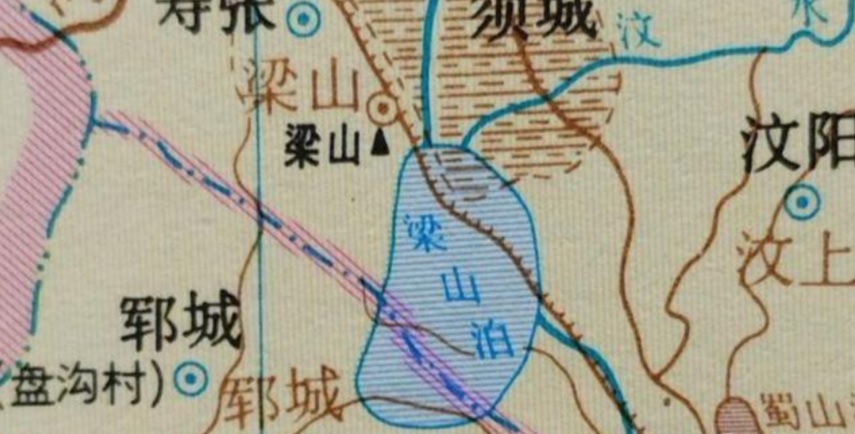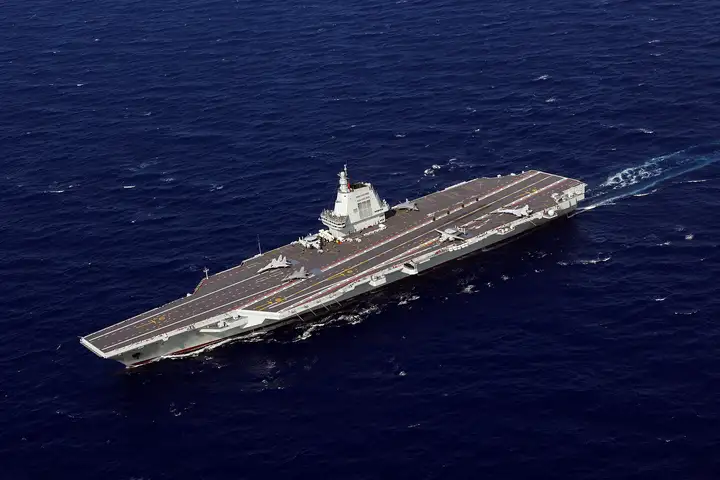Demolishing Myths of a “Wei Faction” and Reclaiming the Legacies of Wei Qing, Huo Qubing, and Emperor Wu in Records of the Grand Historian
How many people have never actually read Records of the Grand Historian (Shiji) or Book of Han (Hanshu)? How many haven’t read other related stories from that period of history, nor understand the political environment and culture of Han society? On one hand, they claim, “Many parts of Sima Qian’s Shiji are just his own imagination and embellishment, untrustworthy.” Yet on the other hand, they scrutinize the lines of Shiji searching for so-called “historical truths.” On one hand, they think, “Sima Qian might not have noticed anything wrong,” but on the other hand, they insist, “Sima Qian wrote it this way with certain hidden meanings.” On one hand, they believe “Sima Qian wasn’t that familiar with these people,” yet on the other, they confidently assert that their own wild speculations spanning two millennia represent the real history… I suppose historical conspiracy theorists are all this contradictory.
First, regarding the historical records of Huo Qubing’s life. Concerning Huo Qubing, essentially all the historical records we can find originate from Sima Qian’s Records of the Grand Historian, specifically the “Biographies of General-in-Chief Wei and the Swift Cavalry General” (Wei jiangjun piaoqi liezhuan). (Book of Han copied Records of the Grand Historian, so no need to dwell on that). Believe it or not, this is the only source; there are no alternatives.
Now, about Sima Qian. If we were to assign him a persona, Sima Qian was likely a rather stubborn and straightforward person. He was the type who held nothing back, speaking his mind completely. When he wrote Records of the Grand Historian, he didn’t face significant interference (of course, it being banned later or having missing parts for various reasons is another matter). He dared to give Xiang Yu the status of a “Basic Annals” (benji) – a treatment usually reserved for emperors. He dared to place Chen She among the “Hereditary Houses” (shijia). He dug up the dark history of the Liu family starting from Liu Bang, exposing it thoroughly. He didn’t even fear the emperor; why would he need to conceal anything for anyone? Therefore, if Sima Qian didn’t write about something, it can only mean one of two things: either it didn’t happen, or Sima Qian didn’t know about it. If Sima Qian didn’t know these hidden things, how could we, two thousand years later, possibly know them based solely on the records of this very Sima Qian who was unaware of these secrets?
Next, political struggles. When many people concoct conspiracy theories, they often lean towards the realm of political struggles, claiming Sima Qian only recorded facts but not political struggles. Those who say this probably haven’t read Records of the Grand Historian. Sima Qian was absolutely a master at writing about political struggles. To understand what political struggles were like in the Han Dynasty, one can refer to the “Biographies of the Marquis of Weiqi and the Marquis of Wu’an” (Weiqi Wu’an hou liezhuan). Dou Ying and Tian Fen – this is what powerful imperial in-laws and struggles between powerful ministers looked like! Moreover, their relationships with Emperor Wu were extremely close. Did Sima Qian conceal anything for anyone? The power dynamics intertwined with familial bonds between them and Emperor Wu’s two Dowager Empresses, their conspiracies and open conflicts, the disputes between Confucianist and Daoist doctrines mixed in – Sima Qian wrote about it more thrillingly than a storybook. If Wei Qing and Huo Qubing truly had some major scandal, Sima Qian would probably have been even more interested than us and more eager to dig it up.
At that time, there was no such thing as “official history books.” The first four standard histories (Qian Si Shi) were all private histories. Their records were solely the author’s perspective; there was absolutely no concept of “official records.” Some say Huo Qubing’s death lacked an “official explanation” from the court, making it suspicious. Nonsense! The court didn’t give “official explanations” for anyone’s death back then; the very concept of an “official explanation” didn’t exist then.
As for why Huo Qubing’s death was mentioned so briefly, there can only be one reason: it was a normal death with nothing remarkable to record. Dying of old age or illness were normal deaths. If he had died tragically like Xiang Yu, pitifully like Han Xin, miserably and cruelly like Lady Qi, or if he had been executed, poisoned, or died of depression from neglect, Sima Qian wouldn’t have hesitated to write more. It’s similar to how Records of the Grand Historian generally doesn’t write about the marriages of nobles and generals – it simply means they married and had children normally. Cases like Chen Ping’s wife who outlived five husbands, or Wei Qing marrying his former mistress – those Sima Qian would definitely highlight with vivid detail.
Advances in modern medicine have given us the illusion that an unexplained death of a young person must be unnatural. However, in ancient times, even up until before the Republic of China era, the death of a young person was very common, even among wealthy families. Don’t forget, during the Republican era, the average life expectancy in China was still less than forty. Ancient people were technologically underdeveloped, not dumber than us today. In ancient times, conspiracies were far easier to detect than diseases. Conspiracies rarely left no trace; even if the specific perpetrator couldn’t be identified, at least a record using vague terms like “someone” (mou), “perhaps” (huo), or “there was” (you) would usually remain. As for Huo Qubing, as a soldier, injuries and illnesses were unavoidable. In an era where a common cold could kill, if he suffered battle wounds or illness, dying was normal; surviving would be the anomaly. One can also speculate slightly from Huo Qubing’s name “Qubing” (literally “Dispel Illness”). People generally gave such names likely because the child was sickly from a young age, and the family hoped he would grow up healthy. Years of military campaigns would only deplete his physical strength and make him more susceptible to disease. So, while his early death is lamentable, it was not illogical.
Then, there’s the “Wei Faction” (Wei shi jituan) featured in many conspiracy theories. This is a historic innovation, a magnificent invention born of wild imagination, a stunning fantasy that would silence Sima Qian, make Wei Qing weep, and force Emperor Wu to bow in admiration. Throughout Emperor Wu’s reign, a political group called the “Wei Faction” never existed.
Who was Emperor Wu? Suspicious, ungrateful, cruel, autocratic. During his reign spanning decades, he changed Chancellors (Chengxiang) numerous times, and most met unfortunate ends. Liu Che (Emperor Wu) was not favored by Emperor Jing in his childhood; it was his mother (Empress Wang Zhi) colluding with his mother-in-law (Princess Guantao) who ousted his elder brother (Crown Prince Liu Rong) to put him on the throne. Once enthroned, he had two mountains pressing down on him: his mother and his grandmother (Empress Dowager Dou), both backed by their own powerful in-law factions. His mother-in-law (Princess Guantao) was dearly beloved by his grandmother and fabulously wealthy (Empress Dowager Dou left her entire estate to Princess Guantao upon her death). He outlived his grandmother, then his mother, and after his mother died, he still had to deal with the pile of relatives left behind by both women. Besides his own troublesome relatives, don’t forget that when Emperor Wu ascended, it had only been about 50-60 years since the founding of the Han Dynasty, and only 30-40 years since Emperor Wen was installed. Remnants of the powerful “Red” (founding) generation, second, and third generations who had supported previous enthronements still existed, and the various enfeoffed kings were restless. Why did Emperor Wu insist on elevating the low-born Wei Zifu early in his reign and promote talented but obscure scholars indiscriminately? His intention was very clear: to counter these imperial relatives and hereditary nobles, sending a message to those relying on family connections and ancestral privilege not to be too arrogant. That Wei Qing and Huo Qubing could be so heavily relied upon was not only due to their extraordinary military talents but also because they were of lowly origins with no backing; they could only be loyal to the emperor without considering other interest groups.
In this era of Emperor Wu, where centralization of power was progressively strengthening, facing a suspicious and ungrateful Son of Heaven, a ruler who had suffered under powerful in-law factions for two generations – how could Wei Qing, who owed his entire rise from slavery solely to the emperor’s hand, dare to nurture a “Wei Faction”? Wouldn’t that be like cultivating poison? Wouldn’t that be courting death? Seeking to reduce his excessive rank?
Records of the Grand Historian specifically records:
The Grand Historian remarks: Su Jian once said to me, “I once criticized the General-in-Chief [Wei Qing] for his extreme high rank and reverence, yet the worthy scholars of the world do not praise him. I wish the General would observe how ancient famous generals attracted and selected worthy men, and exert himself in this!” The General-in-Chief declined, saying: “Ever since Weiqi [Dou Ying] and Wu’an [Tian Fen] lavishly entertained retainers, the Son of Heaven has often gnashed his teeth [in anger]. To personally attach scholars and gentlemen, to attract the worthy and reject the unworthy – these are the prerogatives of the ruler. A subject’s duty is merely to uphold the law and fulfill his office; why should he concern himself with attracting retainers?” The Swift Cavalry General [Huo Qubing] also followed this principle. Such was their way as generals.
This is extremely clear: Wei Qing and Huo Qubing did not keep retainers (menke). Why not? Because Wei Qing remembered how Tian Fen and Dou Ying died! To imagine a so-called “Wei Faction” based on one’s astonishingly wild historical conspiracy theories – is that underestimating Wei Qing or underestimating Emperor Wu?
Now, about Princess Pingyang. In reality, the relationship between Princess Pingyang and Emperor Wu was not as deeply fraternal as later generations imagine. Beyond kinship, what existed between them was more the distinction between ruler and subject, superior and inferior. When Emperor Wu fancied Wei Zifu and was about to take her from Princess Pingyang, what did the Princess say to Wei Zifu? “If you become noble and wealthy, do not forget me” (roughly the meaning). If she were truly so emotionally close to Emperor Wu, her full-blooded brother, would a Princess need to curry favor by procuring women? Would she need to entreat a singing girl, just boarding the emperor’s carriage with an uncertain future, “Remember to help me if you succeed”? Don’t forget, Emperor Wu not only feared imperial in-laws, he also feared his aunts. While Empress Dowager Dou was alive, Princess Guantao likely often treated him and his mother with condescension, leveraging her status as benefactor. Thus, even as a Princess, Pingyang could only maintain favor by procuring women. She cultivated an Empress [Wei Zifu] yet still felt insecure, fearing Wei Zifu would lose favor with age. Li Furen also came from her household. Princess Pingyang ultimately marrying Wei Qing was also about securing a patron for her later years. Therefore, those fantasizing that Princess Pingyang was the Wei family’s greatest backer, deeply favored by the emperor, even daring to poison Huo Qubing – their imaginations are too vast and need patching. After Huo Qubing died, Emperor Wu mourned him with the utmost honors, ordering armored soldiers to line the road from Chang’an to his tomb at Maoling. His tomb mound was shaped like Mount Qilian, an enormous project. If he had truly been poisoned, even by Princess Pingyang, Emperor Wu would likely never have forgiven it, let alone covered it up.
Back to Wei Qing and Huo Qubing. In Records of the Grand Historian, they share a single biography (liezhuan) because in the eyes of Sima Qian, a contemporary official, they were one entity – uncle and nephew. Since the so-called “Wei Faction” didn’t exist, then a struggle between Wei and Huo is even less plausible. Li Gan was Huo Qubing’s subordinate. Because Li Gan injured Wei Qing, Huo Qubing shot and killed Li Gan during a hunt. During Emperor Wu’s reign, the law was still highly respected. Emperor Wu’s sister, Princess Linlü, entrusted her son to the Emperor before her death, giving him her family’s wealth – a thousand jin of gold and ten million coins – pleading that if her son committed a crime in the future, his life might be spared. Emperor Wu agreed. Yet, when her son later committed a crime, Emperor Wu wept but still had him executed, saying that even though brother-sister affection ran deep, he could not violate the law, or he would be ashamed to face his ancestors, apologizing to his sister (a classic case of taking the money but not delivering!). In this period of strict law, when Huo Qubing killed Li Gan, he did so prepared to sacrifice his own life. Even though Emperor Wu favored Huo Qubing immensely, he couldn’t simply say, “So what if he killed someone?” He had to fabricate an excuse that Li Gan was gored to death by a stag’s antlers.
Would Emperor Wu use a man (Huo Qubing) who dared to risk his life for his uncle (Wei Qing) to suppress that very uncle? Was Emperor Wu stupid? Everyone clearly understood: Wei Qing and Huo Qubing stood together – glory shared, ruin shared.
Conspiracies about Emperor Wu murdering Huo Qubing or Huo Qubing’s son are even more laughable.
Many people likely vastly underestimate Emperor Wu’s intense longing to defeat the Xiongnu. After Wei Qing’s surprise attack on Longcheng brought the great victory at Heshuo, besides repeatedly ennobling Wei Qing, Emperor Wu directly changed the reign era name to Yuanshuo (“Prime Pacification”) to commemorate this unprecedented triumph. Later, before the Han Dynasty decided to launch a large-scale counter-offensive against the Xiongnu, Emperor Wu changed the reign era name to Yuanshou (“Prime Hunting”) – while partly because a strange beast was captured during a hunt, “shou” (狩) in ancient times also meant “military expedition,” likely more about preparing momentum for the coming campaign. After Wei Qing and Huo Qubing died, Emperor Wu forcibly promoted Li Guangli to continue fighting the Xiongnu. In this context, would Emperor Wu murder Huo Qubing because he feared his excessive power? And dare not make a sound, with the entire court oblivious? When Emperor Wu wanted to kill someone, he truly didn’t need many reasons. There were precedents of him executing entire families of those with illustrious merits over disagreements. If he wanted Huo Qubing dead, the Li Gan incident, occurring in Emperor Wu’s law-strict era, would have been sufficient justification to legitimately demote or even imprison Huo Qubing. After Huo Qubing died, Emperor Wu held his son, Huo Shan, in high regard: “The Emperor loved him, favored him, and hoped to make him a general when he grew up.” This means Emperor Wu liked him very much, but this liking wasn’t purely emotional affection; it was more that Emperor Wu wanted him to lead troops into battle when he matured. Huo Qubing led troops deep into enemy territory at 17, achieving great feats; naturally, Emperor Wu hoped Huo Shan could be similarly precocious like his father – it was more an expectation. He took Huo Shan with him to perform the Fengshan sacrifices at Mount Tai, and only brought Huo Shan with him to the summit – such extraordinary favor! Then Huo Shan died after returning. Some conspiracy theorists say, “Who knows what the Emperor did to the child on the mountain? How did he die right after coming down?…”
Brother, conspiracy theories need to follow basic logic! What was the Fengshan ritual? It was planned for countless years, the first Fengshan since Qin Shi Huang! Feng: sacrifice to Heaven; Shan: sacrifice to Earth. Was Emperor Wu out of his mind? Would he plan for years and spend vast resources on the grand Fengshan ceremony, all just to poison a child right under Heaven’s watchful gaze? And not even have him die on the spot, but much later after returning? And keep it secret? And then hypocritically compose poems mourning the child, saying he cried missing him, that the heavenly road was too far to see him? This kind of outrageous conspiracy theory, whoever came up with it is a “talent.” Whoever believes it is also a great “talent.” Emperor Wu, a man who didn’t need reasons to execute entire families, would go to such convoluted lengths for a child?
Records of the Grand Historian records that Ning Cheng once suggested to Wei Qing that his favor was entirely due to Wei Zifu, and now Lady Wang was favored but her relatives weren’t noble; Wei Qing should ingratiate himself with Lady Wang’s family. The honest and simple Wei Qing did just that. When Emperor Wu saw Wei Qing sending five hundred jin of gold as birthday gifts to Lady Wang’s parents, knowing Wei Qing’s character, he realized Wei Qing lacked the cunning for such maneuvering – someone must have taught him. Wei Qing honestly admitted it was Ning Cheng. This man, at the pinnacle of officialdom, remained honest and simple, constantly cautious and prudent – even Emperor Wu didn’t believe he could come up with the idea of currying favor with a consort’s parents on his own. Fantasizing that he built a powerful Wei Faction? And conspired to kill Huo Qubing with methods so skillful even Sima Qian didn’t know? Wake up!… Emperor Wu ultimately rewarded Ning Cheng, appointing him Commandant of Donghai. In my view, this was nothing but a warning. Emperor Wu wanted to tell Ning Cheng and others that any clever schemes about court power struggles whispered to Wei Qing, the Emperor knew. Others had better have self-awareness; if they instigated the General-in-Chief to do something, the Emperor would trace it back to them. If it were you, and one day Emperor Wu suddenly appointed you Commandant of Donghai because you advised the General-in-Chief to send gifts to the parents of the emperor’s favorite consort, what would you think? If it were me, I’d be thanking His Majesty profoundly, quickly packing my bags for Donghai, and never daring to speak recklessly again in this lifetime.
I greatly admire the stories of Wei Qing and Huo Qubing. Wei Qing’s surprise attack on Longcheng, his distant strike into the northern deserts, single-handedly reversing the offensive-defensive dynamic between Han and Xiongnu. Huo Qubing, a heaven-sent genius, the youthful Champion Marquis, watering his horses at the Desert Sea (Hanhai), performing the Feng and Shan sacrifices on Mount Langjuxu – his brief, dazzling life was like a brilliant meteor, a sharp sword cleaving the sky. The unparalleled achievements of Wei and Huo became the lifelong dream of countless generals for millennia, evoked nostalgia in innumerable scholars, and fueled the aspirations of countless generals lamenting “the Yanran Stone not yet engraved, no plan to return home.”
I lament Huo Qubing’s early death. I wish history had more detailed records of his twenty-three years, hoping to know more stories of his life beyond the sparse lines in the histories about his battle merits and enfeoffments. But I detest conspiracy theories. All irresponsible, unrealistic conspiracy theories are disrespectful to history and misleading to people today. Huo Qubing’s premature death was a regret for Emperor Wu, a regret for the Great Han, and a regret for us, the Huaxia people. I hope all holders of conspiracy theories can face history squarely, respect history, respect the great heroes of our nation, and respect that young general who blazed like a meteor across the long river of history.
This matter is also why I deeply despise Tong Hua. As a historical nihilist and inventor of history, she firmly believes her creations represent the history Sima Qian dared not write, believes history is all politicians’ conspiracies and schemes, and believes historical records are unreliable and unobjective. Many people’s conspiracy theories about Wei Qing and Huo Qubing also stem from her irresponsible misguidance and wild imagination. I read Ballad of the Desert (Da Mo Yao) from start to finish. Regarding this wish-fulfillment fantasy where every good man under heaven becomes the female lead’s harem, I initially dismissed it with a laugh. But I was later shocked to discover many people genuinely believe her historical conspiracy worldview. Many haven’t even read the original text of Records of the Grand Historian, yet confidently assert that Shiji must be wrong, must be Sima Qian’s distortion of real events. I know this can’t all be blamed on Tong Hua, but her irresponsible statements have truly had a profound impact, such as on this very issue. I hope everyone can learn correct history through proper channels, establish a scientific and cautious view of history, and show more respect for the heroic figures of our Huaxia nation.





You guys really think gamebetvina is better? I had a mixed experience. The selection isn’t bad, but support was kinda slow. Definitely has potential though. Try at your own risk: gamebetvina